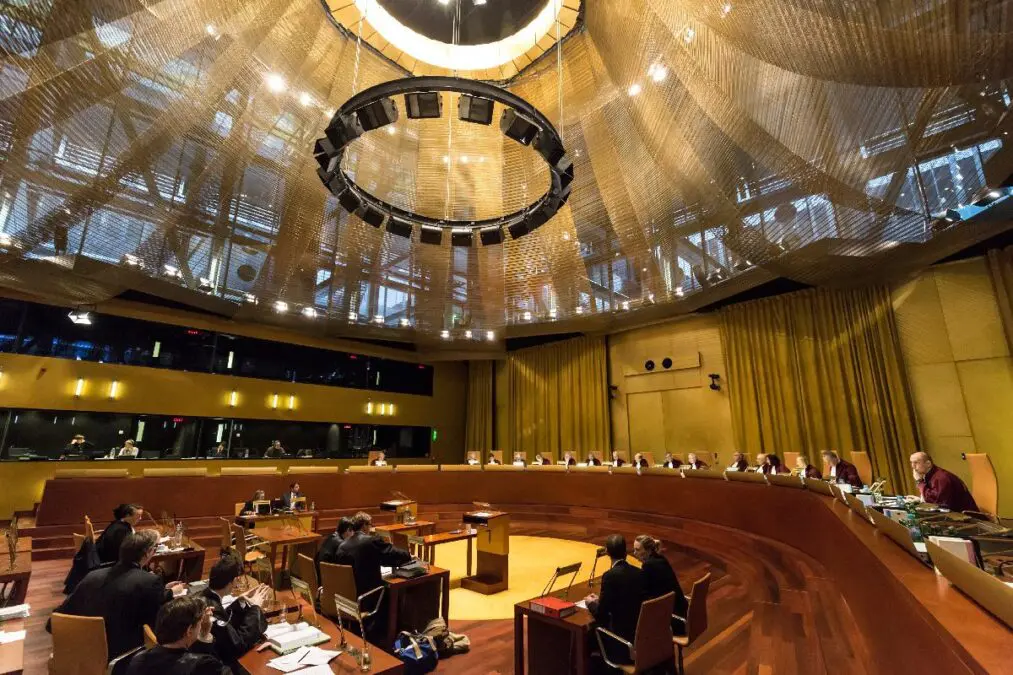More than two decades ago, the European Union committed itself to protect workers’ equality by adopting Directive 2000/78 of 27 November 2000, which prohibits direct and indirect discrimination on many grounds, including religion. However, it is worth clarifying that direct discrimination is crude and rampant discrimination – dismissing someone because of their race, religion, or belief, etc. In contrast, indirect discrimination is more subtle, identifying with the situation some employees suffer when a legitimate business provision disadvantages them because of their religion or any other personal characteristic.
The Court of Justice of the European Union has recently ruled in the Wabe & MH Müller Handels judgment of 15 July 2021 on religious discrimination against workers, establishing a somewhat contradictory doctrine. On the one hand, it creates greater protection against situations of indirect discrimination. Still, on the other hand, it shows certain misgivings about the presence of religion in the workplace.
The Court had already recognised in the Achbita judgment (2017) that companies are entitled to adopt neutrality policies even if they discriminate against some employees based on religion by preventing them from fulfilling certain obligations such as wearing religious clothing. However, the Court understood that those affected have to resign when the neutrality policy responds to legitimate business interest and is appropriate and necessary ( i.e., it is applied consistently to all of them), affects all types of manifestations – political, ideological, religious, etc. – and is not excessive to achieve its objectives.
The Wabe ruling strengthens the protection of workers by adding that it is not enough for an employer to claim that there is a policy of neutrality to justify indirect discrimination on the grounds of religion, but that he must prove that such a policy meets an objective business need. In other words, if he wants to prohibit religious clothing, he will have to prove that the business would otherwise suffer significant damage.
The second reinforcement is that the Court allows member states to augment the Directive’s safeguards against indirect discrimination by applying their national religious freedom laws where they have more beneficial provisions. In this way, EU states are allowed to require their employers to make their policies of neutrality as compatible as possible with the religious freedom of their employees, allowing them to fulfil their religious obligations unless they cause undue hardship.
Paradoxically, the Wabe ruling is contradictory in that, while supporting workers’ religious equality, it undermines some of its guarantees.
As I have stated above, the Directive accepts that under certain circumstances, workers have to resign themselves to suffer the detrimental effects of a legitimate business measure as long as it is proportionate, i.e., does not harm them more than is strictly necessary.
The Court, ignoring this provision, considers that the employer, even if he considers that it is sufficient for his public image to prohibit large and conspicuous symbols, is obliged to prohibit all of them (even small and discreet ones), as otherwise, he would be directly discriminating against those workers who have to wear visible symbols.
This argument contradicts the doctrine established in Achbita, which ruled that, a prohibition affecting religious symbols, does not generate a situation of direct discrimination when it is applied indiscriminately to all workers, and covers any symbology regardless of its political, religious, or other nature. Applying the same reasoning, a ban on the use of conspicous symbols – whatever their nature – cannot directly discriminate against workers who use them, as long as it applies consistently to all workers.
I believe that, in the main, the Court shows in this decision a certain mistrust of religion in the workplace, in that it seems to suggest that the best way to avoid tensions between workers and towards customers is to eliminate any religious manifestation. This is, moreover, a mistaken assessment from the point of view of freedom of enterprise, insofar as it is up to employers alone to decide what image of their business they wish to project and to act accordingly, being able to apply a policy of neutrality understood either as the absence of any religious manifestation or as a reflection of the diversity, that is, admitting all manifestations without impositions or prohibitions.
In short, this ruling shows that, although significant progress has been made, there is still a long way to make equality and religious freedom in employment a reality and effective in the old continent.
Santiago Cañamares Professor of Law and Religion, Complutense University (Spain)







